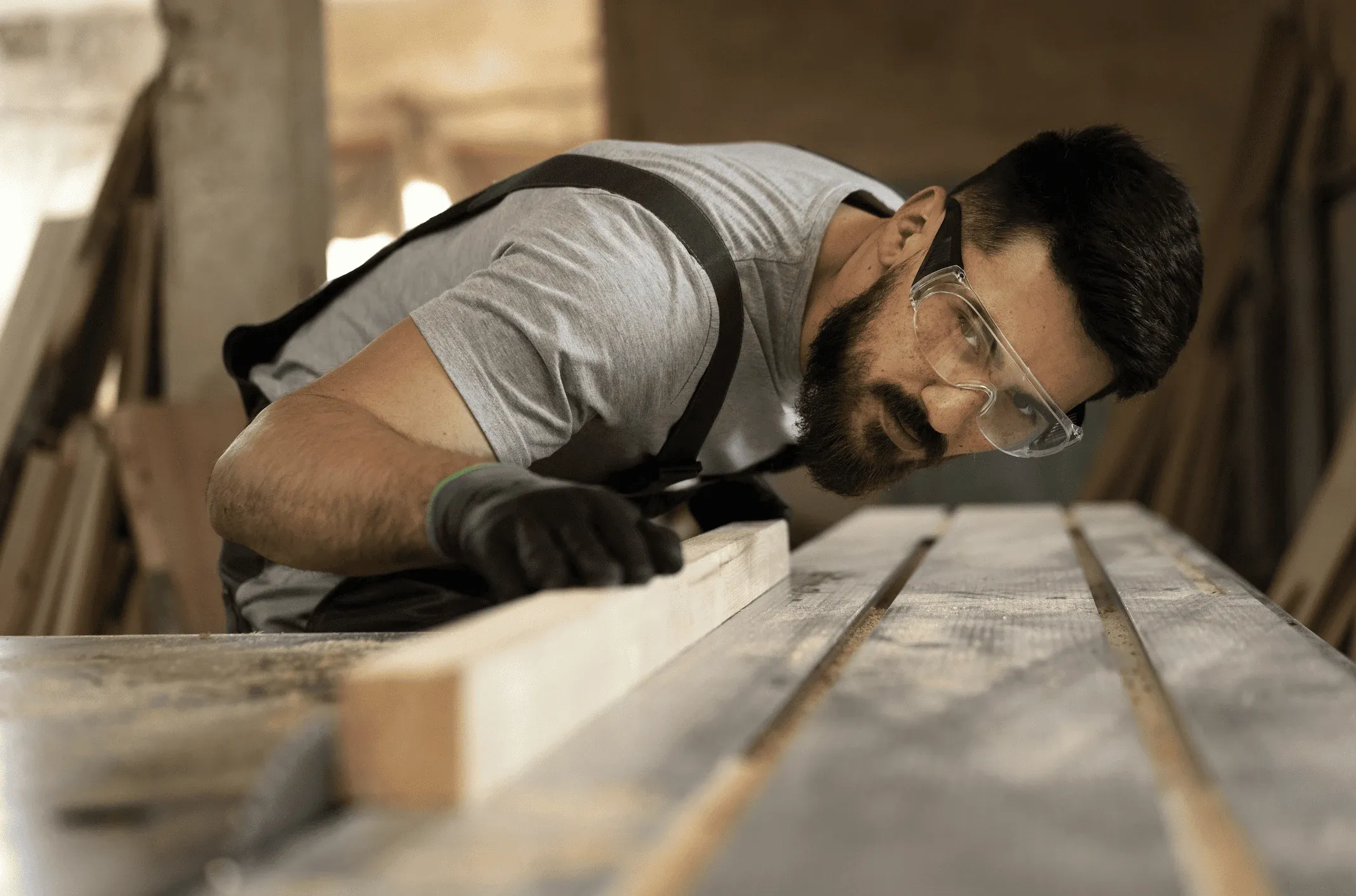Trim Carpenter Jobs: How to Find and Hire Skilled Finish Carpenters
The construction industry relies heavily on specialized craftsmen, and among the most sought-after professionals are trim carpenters. These skilled artisans are the finishing touch that transforms a construction project from functional to beautiful. Whether you're a contractor looking to hire skilled finish carpentry professionals or a craftsman seeking your next opportunity, understanding this specialized trade is crucial for success in today's competitive market.

What is a Trim Carpenter? Understanding the Finish Carpentry Trade
A trim carpenter, also known as a finish carpenter, specializes in the final phase of construction work. Unlike framing carpenters who work on the structural elements, these professionals focus on the detailed, visible work that gives a building its polished appearance. They are typically the last carpenters on site, responsible for making everything look finished and professional.
Key responsibilities include:
Installing baseboards and shoe molding along wall bases
Fitting crown molding at ceiling and wall junctions
Installing window and door casings for a clean, finished look
Creating and installing chair rails and wainscoting
Building custom shelving and built-in storage solutions
Setting doors and ensuring proper alignment
Installing decorative millwork and architectural details
The precision required for finish carpentry work sets these professionals apart from general carpenters. Every cut must be exact, every joint must be tight, and every piece must align perfectly. This attention to detail is why specialized finish carpentry positions typically command higher wages than general carpentry roles.
The Value of Skilled Trim Carpenters in Construction Projects
In the construction industry, there's a clear distinction between those who can frame and those who can trim. As one experienced finish carpenter noted, "Anyone can frame, but not everyone can trim." This reality creates significant opportunities for skilled professionals.
Finish carpentry specialists enjoy several advantages over their framing counterparts:
Climate-Controlled Work Environment: While framers work in all weather conditions, trim carpenters typically work indoors with established climate control systems. When it's -5 degrees outside, finish carpenters are working comfortably inside heated buildings.
Higher Pay Scale: The specialized skills required for finish work command premium wages. Companies understand that quality trim work requires experienced professionals and are willing to pay accordingly.
Year-Round Opportunities: Unlike exterior work that can be weather-dependent, finish carpentry jobs continue throughout the year, providing more consistent employment opportunities.
Skill Recognition: A skilled professional builds a reputation for quality that leads to repeat work and referrals. Their craftsmanship is visible and appreciated by clients long after construction is complete.
Essential Skills and Tools for Trim Carpenter Success
Successful finish carpentry professionals master both technical skills and specialized tools. The work requires precision measurement, expert cutting techniques, and an eye for detail that comes with experience and training.
Core Technical Skills:
Precise measuring and marking techniques
Advanced miter cutting for perfect joints
Understanding of wood properties and grain patterns
Knowledge of different molding profiles and applications
Ability to read architectural drawings and specifications
Problem-solving skills for challenging installations
Essential Tools for Professional Work: Modern finish carpentry professionals rely on specialized tools that enable precision and efficiency. Quality tool belts designed specifically for trim carpenter work typically include slots for multiple tools, pencil storage, and compact designs that don't interfere with detailed work. The difference between a standard carpenter's tool belt and a specialized finish carpentry set is significant – these belts are typically 3 inches shorter and designed for precision work rather than heavy construction.

Safety Considerations: Finish carpentry work involves power tools like miter saws, which require proper safety techniques. Professional carpenters never cross their arms when using miter saws and always use appropriate dust collection when cutting materials like MDF.
FlexCrew: Connecting Skilled Trim Carpenters with Construction Projects
At FlexCrew, we act as the bridge between construction companies and skilled professionals. When it comes to trim carpentry — where precision and detail are key — we help match qualified finish carpenters with the right construction projects. Our deep understanding of both the labor market and project needs ensures that companies get reliable talent, and workers find the right job opportunities to put their expertise to use.
Why Choose FlexCrew for Specialized Staffing?
FlexCrew understands the unique requirements of trim carpenter positions and maintains a network of skilled professionals ready to meet your project needs. Our candidates have been vetted for both technical skills and reliability, ensuring you get craftsmen who can deliver the quality finish work your projects demand.
For Contractors: FlexCrew provides access to experienced professionals who can step into your projects immediately. Whether you need skilled finish carpenters for a single residential project or multiple commercial builds, our staffing solutions scale to meet your needs.
For Professionals: FlexCrew connects skilled trim carpenters with quality opportunities across various project types. Our network includes both short-term project work and longer-term positions with established construction companies.
Career Opportunities and Growth in Trim Carpentry
The finish carpentry trade offers excellent career prospects for skilled professionals. With the construction industry's continued growth and the constant need for quality finish work, experienced trim carpenters enjoy strong job security and advancement opportunities.
Career Path Options:
Residential specialist focusing on custom homes
Commercial finish carpenter working on office buildings and retail spaces
Restoration specialist focusing on historic properties
Lead carpenter managing finish crews
Independent contractor building a client base
The transition from general carpentry to specialized finish work represents a significant career advancement. Companies recognize this progression and typically reward advanced skills with higher compensation and better working conditions.
Market Demand and Industry Trends for Trim Carpenters
The demand for skilled finish carpentry professionals continues to grow across the construction industry. Several factors contribute to this strong market demand:
Residential Construction Growth: New home construction requires skilled finish work for every unit. Custom homes particularly demand high-quality carpentry that only experienced trim carpenters can provide.
Commercial Project Requirements: Office buildings, retail spaces, and hospitality projects all require professional finish work that meets commercial standards.
Renovation and Remodeling: The growing renovation market creates consistent demand for specialized services as property owners update and modernize their spaces.
Quality Expectations: Today's construction clients expect high-quality finish work, creating opportunities for skilled professionals who can deliver superior results.
Working with FlexCrew: Streamlined Trim Carpenter Placement
FlexCrew's approach to finish carpentry staffing focuses on matching the right professionals with the right opportunities. Our understanding of both the technical requirements and the working conditions helps ensure successful placements that benefit both contractors and skilled professionals.
Our Process:
Skill Assessment: We evaluate candidates' technical abilities and experience levels
Project Matching: We connect trim carpenters with projects that match their skills and career goals
Ongoing Support: We provide continued support throughout the placement to ensure project success
Geographic Coverage: FlexCrew serves construction companies and finish carpentry professionals across multiple markets, providing flexibility and opportunities wherever your projects are located.
Frequently Asked Questions About Trim Carpenter Jobs
What's the difference between a trim carpenter and a regular carpenter?
A trim carpenter specializes in finish work like installing baseboards, crown molding, and door casings, while regular carpenters typically focus on framing and structural work. Finish carpenters work with tighter tolerances and focus on visible, detailed craftsmanship.
How much do trim carpenters make in the United States?
Wages vary by location and experience level, but typically range from $25-45 per hour, with experienced professionals earning more. FlexCrew can provide current market rates for your specific area.
What cities have the highest demand for trim carpenter jobs?
Major metropolitan areas like Atlanta, Dallas, Phoenix, Denver, and Charlotte consistently show strong demand for finish carpentry professionals due to active construction markets.
Do I need special certification to work as a trim carpenter?
While formal certification isn't always required, many professionals complete apprenticeships or vocational training. Experience and demonstrated skill are typically more important than formal credentials.
Can FlexCrew help me find trim carpenter work in my area?
Yes, FlexCrew maintains a network of construction companies across multiple markets seeking skilled trim carpenter professionals. Contact us to discuss opportunities in your location.
What's the job outlook for trim carpenters in 2025?
The Bureau of Labor Statistics projects continued growth in construction trades, including finish carpentry positions, driven by ongoing residential and commercial construction activity.
How quickly can FlexCrew place a trim carpenter on my project?
FlexCrew maintains a ready pool of qualified professionals and can typically provide candidates within 24-48 hours of receiving your requirements.
Do trim carpenters work year-round?
Yes, trim carpenters typically work indoors and aren't as affected by weather as other construction trades, providing more consistent year-round employment opportunities.